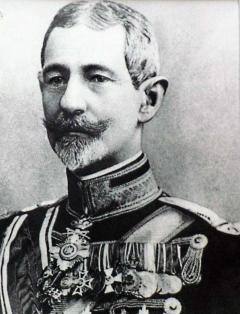Auferstanden Aus Ruinen:
Resurgent economy, centralization, and streamlining after the Great War

Resurgent economy, centralization, and streamlining after the Great War

The German economy after the Great War was, much like the rest of Europe, in a slump. Cut from its foreign markets by the loss of its colonies, privileges in China and by the economic of the Versailles Treaty, crippled by the shift to war industry and plagued by strikes and unrest, Germany had lost a lot of its splendour. Yet, compared to France, its industrial apparel remained intact and it had the possibilities to grow stronger, and fast. The German government, legitimately thinking that the political issues couldn't be truly settled if Germany remained in the state it was in, and their growing debt forced them to endeavour to reduce spending.
The Reichsrat, the second chamber that represented the federal German states, was a remnant of the Imperial era, and if the Weimar politicians were adamant on keeping the federal character of Germany, they also saw a need to rearrange the organization, as smaller principlaties turned into states had no more reasons to exist. The Reuß Republic had already united the two Reuß principalities, but as Coburg joined Bavaria, Gotha, Saxe-Weimar, Saxe-Meiningen and Saxe-Altenburg joined with Reuß to form the new state of Thuringia. These changes brought a bit more equality in the Reichsrat, even if other politicians could hardly challenge the Prussian dominance on politics. Moreover, these changes brought administrative simplification, and thus reduced the burden on federal finances, and slowly made the old structures of the Empire fade. However, it remained to see how the Weimar Republic would deal with Rhinelander particularism within Prussia, and with Bavarian nationalism.
The German railways were mobilized by the Versailles Treaty to assist the Entente powers, and coupled with the general chaos of the first two years of republican rule, it made railways very unreliable for commercial purposes. General Wilhelm Groener, who had been key to avoiding a bloodbath when the Republic was declared, but who had also ensured the Freikorps and conservative officers would keep a fair share of power, was made Reichskanzlern das Reichsverkehrsministerium, essentialy Transports Minister. It was assumed that his administrative skills, his extensive knowledge of the network and his ties with powerful industrialists and influential officers would help him achieve his goals even if the situation at home was difficult. Groener had opposed Bavarian separatism, and had seen that during the revolution, local governments had been powerless to stop the revolutionaries. He thus intended to centralize all state-run railways networks and to subordinate them to the federal government, depriving potential Bolshevik rioters from control over the vital link between German states. These companies were merged in the Deutsche Reichseisenbahnen and the few damaged lines were repaired, new locomotives were acquired in order to make transportation as smooth as possible, considering the situation. Under his leadership, it seemed that railways, key to a modern economy and to the industrial renewal of Germany, would be the most effective federal service.


















